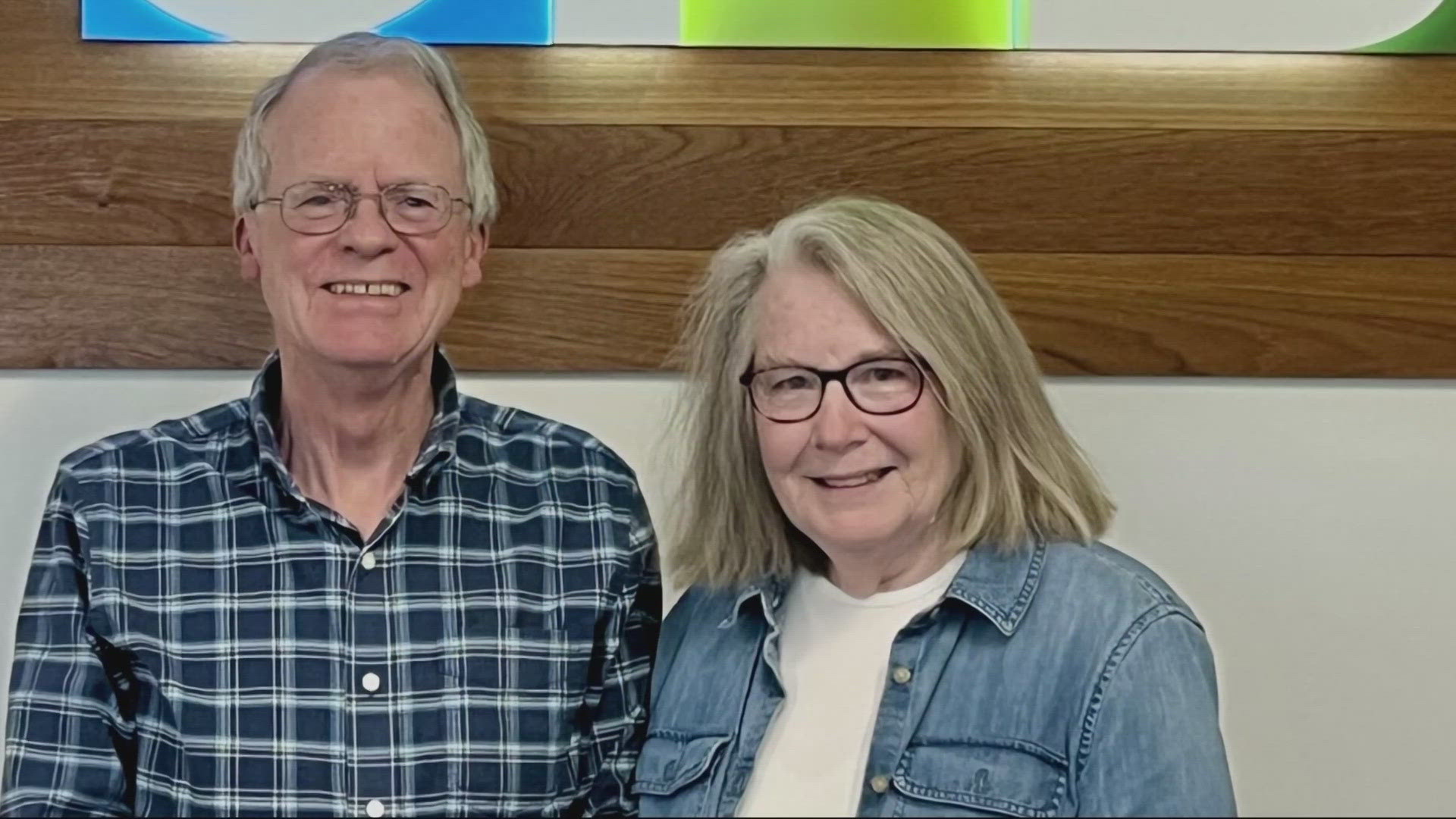PORTLAND, Ore. — November may be National Alzheimer's Disease Awareness Month, but for one man, every day is an opportunity to spread awareness.
Decades of marriage have gone by like a blink of an eye for Daniel Gibbs and his wife, Lois Seed. They’ve been married for 51 years and have been through a lot.
Gibbs spent his career helping people as a neurologist. He retired in 2013, and a couple years later, was diagnosed with Alzheimer’s disease, a brain disorder that slowly destroys memory and thinking skills.
“That's become my new uh, job, second career ... education and research on Alzheimer’s disease,” said Gibbs.
He and his wife just spoke at the Alzheimer's Association McGinty Conference on Alzheimer’s and Aging.
Gibbs, who is still in the early stages of Alzheimer's, has written two books about it. One of them, “A Tattoo on my Brain," became a documentary in 2022. It's been a journey.
“In hindsight, my first symptom of Alzheimer's disease probably was in 2006 when I started to lose my sense of smell,” Gibbs said. He recalls having smell hallucinations where he’d smell baking bread combined with perfume — though for others, he said smell hallucinations can be less pleasant.
Then came the DNA test showing he had the gene that meant he'd likely get Alzheimer’s disease. Now, almost 20 years since his first symptom, he easily loses his train of thought.
“I am just barely in Alzheimer’s dementia now,” he said.
But his wife is there to help him remember.
“I used to sit in the back row just to be there. Now I sit in the front row or else I’m up with him if it's a panel,” said Seed.
Gibbs said one of the biggest risk factors for the disease is having a close relative who has it.
Five ways to delay or lower the risk of developing Alzheimer’s
Gibbs gave tips on ways to stay healthy and potentially lower your chances of developing the disease.
- Exercise: Starting in midlife or as early as possible, people can exercise. “There’s really good data from many, many studies that getting daily, or not even daily, but adequate aerobic exercise makes a big difference in slowing down the progression of the disease,” said Gibbs.
- Eat healthy: People worried about Alzheimer’s should start paying closer attention to their diet. Gibbs said people who ate a Mediterranean-style diet had a lower incidence of Alzheimer’s disease.
- Keep your brain active: Gibbs said he likes to read and write, both of which help keep his brain healthy.
- Get good sleep: “It seems that people who get less than 7.5 hours of sleep are more likely to get dementia,” said Gibbs.
- Take your heart health seriously: According to Gibbs, cardiovascular risk factors also happen to be risk factors for dementia and Alzheimer’s Disease. So, he said keeping your heart healthy is important.
For now, Gibbs is still active in managing his website, as well as speaking at conferences and panel discussions, but he and his wife know the end stages of Alzheimer's aren't pretty. Still, they say there's plenty of quality time to be had.
“There are all these things that you can do and I just would say, don't despair about a diagnosis because there's still time,” said Seed.
She said there’s time to make different choices about how to live life. What helps, she said, are a good support network, and sometimes a little humor.

